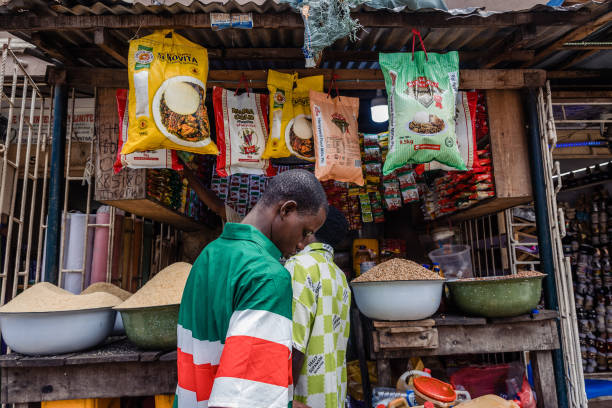“Before, I could buy rice and still fuel my car to drop the kids at school. Now, I have to pick one—and hope the other can wait,” says Mrs. Olawale, a mother of three in Ibadan. “These days, even cooking with gas feels like luxury.”
Welcome to the daily dilemma of many Nigerian households: the hard, painful choice between food on the table and fuel in the tank.
Since the Federal Government scrapped fuel subsidies in 2023, the price of petrol has more than tripled. For ordinary Nigerians, this isn’t just a policy shift—it’s a lifestyle earthquake.
“We No Dey Save Again”
Once upon a time, the average Nigerian family could afford small pleasures: a Sunday outing, a pot of jollof with plenty meat, or even some modest savings at the end of the month. Now? Many are just hoping to make it to the next payday—if there’s even one.
“Savings?” chuckles Mr. Ayodele, a schoolteacher in Akure. “We’ve graduated from ‘saving for the future’ to ‘surviving till weekend.’”
For many families, fuel now takes a large bite out of income. Commuters report paying double or triple on transport fares, while food prices skyrocket due to higher logistics costs. A bag of rice that once cost ₦25,000 now sells for over ₦60,000 in some areas.
Even sachet water—the humble “pure water”—hasn’t been spared. From ₦10 to ₦30, it’s now almost as expensive as the message it carries: things are hard.
“I Now Trek and Think Deeply”
Trekking has returned with full force—not as fitness culture, but as fuel-saving strategy. For many urban dwellers, walking has become the new Uber. The challenge is, you trek today, and tomorrow you still don’t have money.
Bola, a hair stylist in Abuja, used to take two Keke rides to her salon. Now she walks one hour each way. “It’s painful, but it’s better than spending my whole profit on transport,” she says, wiping sweat from her brow. “I just carry slippers in my bag and move.”
One Chicken, Many Mouths
In the kitchen, the story is no different. Families now plan meals based not on what they like, but on what they can afford. Meat is rationed with military discipline. Many households have returned to the classic one-pot meal: beans in the morning, eba at night—if lucky.
“Last Christmas, I managed to kill one chicken,” recalls Mrs. Ejike, a trader in Enugu. “We divided it like national cake. Even the neck didn’t escape.”
Dreams on Hold
Beyond the daily hunger and struggle, the long-term effects are quietly building. School fees are harder to pay. Medical check-ups are skipped. That long-awaited house project? Paused indefinitely.
Even small business owners are hurting. Iya Bisi, who fries akara by the roadside in Lagos, says she has reduced her quantity due to the high cost of cooking gas. “Na small-small now,” she says. “Before, I dey use full cylinder in two weeks. Now, na firewood I dey use sometimes. Just to cut cost.”
What’s the Way Forward?
The government has promised palliatives and cash transfers to help cushion the blow. But for many Nigerians, that help is either too slow or hasn’t reached them at all. The streets tell a different story—one of grit, frustration, and reluctant endurance.
Still, Nigerians are nothing if not resilient. From cooking with firewood again to using bicycles for work, families are finding creative ways to adapt. But it begs the question: should survival always demand so much creativity?
Every morning, millions of Nigerians wake up and make quiet calculations. Should I buy bread or save for fuel? Should I go to work or work from home to save transport money? Should I send my child to school today or wait till I can afford the fare?
It’s no longer just an economic decision. It’s an emotional one. A human one. And it’s a story playing out in kitchens, bus stops, and living rooms across the country.
In a land where hustle is the national sport, people are tired—but still hoping. For now, the struggle continues. But so does the Nigerian spirit.
As the saying goes: “We go dey alright… one day.”
#FoodOrFuel #NigerianStruggles #PostSubsidyReality





